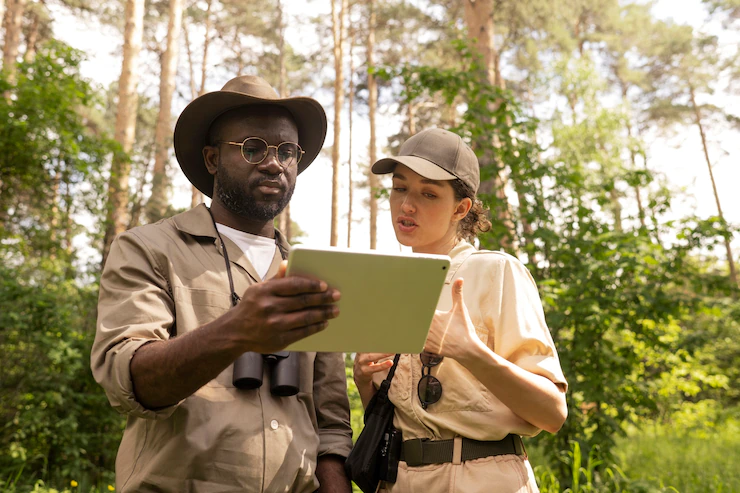- Role and Responsibilities: An ecologist is a scientist who studies the relationship between organisms and their environment. They analyze ecosystems, conduct fieldwork, collect data, and interpret findings to understand ecological patterns and processes.
- Education and Qualifications: To become an ecologist, a minimum of a bachelor’s degree in ecology, environmental science, or a related field is typically required. However, many ecologists pursue advanced degrees such as a master’s or Ph.D. to enhance their career prospects.
- Fieldwork and Research: Ecologists spend a significant amount of time conducting fieldwork. They may collect samples, monitor wildlife, measure environmental variables, or observe ecological interactions. Fieldwork often involves working in remote locations, enduring various weather conditions, and using specialized equipment.
- Data Analysis and Modeling: Ecologists use statistical analysis and modeling techniques to analyze their data. They employ software programs and develop mathematical models to understand ecological patterns, predict future trends, and assess the impact of environmental changes.
- Specialization Areas: Ecologists can specialize in various areas such as conservation ecology, population ecology, community ecology, landscape ecology, aquatic ecology, or behavioral ecology. Specializations allow ecologists to focus their research and expertise on specific aspects of ecological science.
- Collaboration and Communication: Ecologists often collaborate with other scientists, policymakers, and stakeholders. They may work in interdisciplinary teams to address complex environmental issues and communicate their findings to a wide range of audiences through scientific publications, presentations, or public outreach initiatives.
- Environmental Impact Assessments: Ecologists play a crucial role in conducting environmental impact assessments (EIAs). They assess the potential ecological consequences of development projects, evaluate the effectiveness of mitigation measures, and provide recommendations to minimize environmental harm.
- Conservation and Restoration: Many ecologists work in the field of conservation and restoration. They develop strategies to protect endangered species, restore damaged ecosystems, and promote sustainable practices to preserve biodiversity and ecosystem services.
- Policy and Advocacy: Ecologists may engage in policy development and advocacy efforts. They contribute scientific expertise to inform environmental policies, collaborate with policymakers, and advocate for evidence-based decision-making to address ecological challenges.
- Career Opportunities: Ecologists can find employment in various sectors, including government agencies, environmental consulting firms, non-profit organizations, research institutions, and universities. They may work as researchers, educators, consultants, or managers, depending on their specialization and career goals.
Join 'Farmers Mag' WhatsApp Channel
Get the latest Farming news and tips delivered straight to your WhatsApp
CLICK HERE TO JOIN






